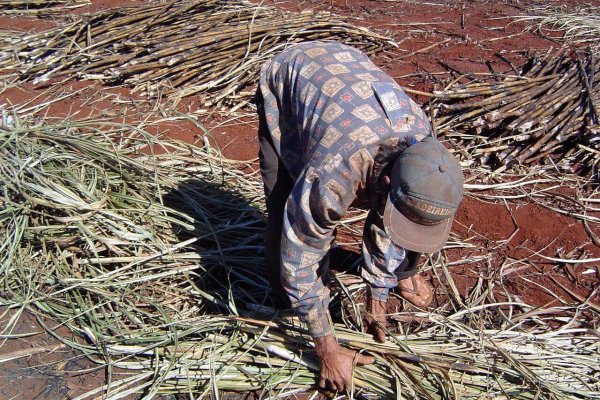How modern slavery accountability gives you a competitive edge
Businesses across the globe have had a lot on their plates in the 2020s. For some, modern slavery accountability - whether legislated or not - is...
4 min read
Jared Kendler : Apr 14, 2022

Under the Modern Slavery Act 2018, large businesses and other entities in the Australian market need to submit annual Modern Slavery Statements to the Australian Government’s Online Register for Modern Slavery Statements.
In only the second year of mandated modern slavery statement reporting for eligible organizations, bedding down processes to ensure compliance is a work in progress for many.
“We’re at the beginning of the modern slavery compliance journey,” said RobobAI CCO Tony Sharpe.
“As modern slavery becomes more prevalent, reporting requirements will become stricter and will likely evolve based on the approach of leading organizations.”
If your organization is still coming to grips with modern slavery statements and reporting requirements, you are not alone.
Who must report on modern slavery in Australia?
The reporting regime focuses on larger organizations more likely to have complex global supply chains while minimizing the impact on small businesses.
Organizations in the Australian market with annual consolidated revenue of at least $100 million must produce a modern slavery statement. This is not just a requirement for Australian entities – any eligible organization operating in the Australian market must report on modern slavery. A statutory review is underway in 2022 that would result in more SMEs being required to report as all tiers of global supply chains face increasing reporting scrutiny.
With the second year of modern slavery reporting complete in Australia, the Government is undertaking a statutory review of the legislation in practice.
The review includes the consideration of establishing a dedicated body to oversee reporting.
As part of a soft introduction period, no penalties are in place for eligible businesses who don’t submit a statement and report against it. This will be under review in 2022.
Voluntary modern slavery statements can be made by smaller entities looking to beef up their ESG credentials. However, this commitment comes with compliance strings attached; once an organization makes a voluntary report, they are bound to continue making annual statements as if they were subject to mandatory reporting.
What does modern slavery reporting look like?
Mandatory reporting to the Australian Government involves eligible organizations making a modern slavery statement. However, with only one reporting period completed and no defined format, many companies are still grappling with what a modern slavery statement should include.
Patrick Shiels, Senior Account Executive at RobobAI, said modern slavery reports currently look very different across organizations as they get to know their supply chains and the new legislation.
“Modern slavery is a fairly new piece of legislation, so most organizations have only reported once and they’re now preparing to submit their second report,” Patrick said.
“What we’re seeing in the statements submitted to date is a focus on laying out a general 2-3 year process that they are planning to undertake.”
Australian Border Force (ABF), which administers the online register, suggests that reporting entities review statements submitted by similar industry organizations to benchmark their reporting.
RobobAI tip: ABF resources include an annexure document to address all mandatory criteria.
What should a modern slavery statement include?
At a minimum, modern slavery statements must set out how organizations are identifying and addressing modern slavery risks in their global supply chains.
Statements must address mandatory criteria:
Published to the online modern slavery register, the statements prompt businesses to not only comply with legislation but to showcase their ESG credentials to consumers and investors.
About the Modern Slavery Register
Established by the Modern Slavery Act 2018, the register publishes modern slavery statements submitted online. All submitted statements are available publicly; anyone can search the register and view your current modern slavery statement.
According to the ABF who administers the register:
The register works in two ways:
As an opportunity for organizations to publicly showcase their commitment to eliminating modern slavery.
What we’ve learned from 2 years of reporting[1]
Since the Modern Slavery Act commenced 2 years ago, the Australian Border Force (ABF) have tracked a range of reporting trends.
The ABF’s recommendations to combat modern slavery risk include:
Implement modern slavery clauses into supply contracts
Update internal supplier, whistleblower and procurement policies
Establish transparent reporting and due diligence processes.
Recommendations from the ABF on improving modern slavery statements:
Tailor statements from other jurisdictions to address Australian legislative criteria
Engage internal stakeholders and entities in preparing the statement
Include detailed modern slavery risk assessments and mitigation.
How to stay compliant and ahead of legislative change
Providing modern slavery assurances for complex global supply chains has proved a challenge, particularly when evidence of due diligence and remediation action is required.
As reporting requirements and consumer/investor activism gain momentum, organizations must rely on robust data and reporting to guide their response.
Moving from manual processes to a dedicated supply chain risk platform cuts down reporting time, flags emerging issues, and cuts out human error to keep your organization on the front foot.
“This is where a dedicated procurement platform comes into its own. We proactively identify where your country, category and supplier risks are, assess supplier modern slavery compliance, and continually categorize suppliers as low, medium, and high risk, so you know where to focus” Tony said.
“Robobai helps you act based on data. Ignorance is no longer a defense when it comes to modern slavery.”
[1] Implementing the Modern Slavery Act 2018: The Australian Government's Annual Report 2020 - 1.1MiB

Businesses across the globe have had a lot on their plates in the 2020s. For some, modern slavery accountability - whether legislated or not - is...

A chance for CPO’s to stand up and be counted

When it comes to preventing modern slavery, actions speak louder than words.